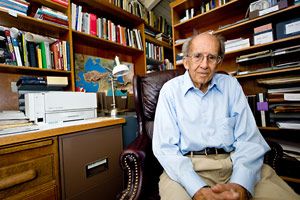On February 18, 1943, as a result of German pressure, Japanese authorities established a ghetto in the Hongkew neighborhood of Shanghai for stateless Jewish refugees who had arrived in Shanghai from Germany and German-occupied areas of Europe from 1937-1942. Kanoh Ghoya was a Japanese official responsible for giving monthly passes to Jewish refugees living in the Hongkew ghetto in Shanghai, China during World War II. Ghoya was also known as the "King of the Jews" and was infamous for his inhumane treatment of ghetto inhabitants.
During World War II, China was divided into three occupation zones among the Communist (CCP) forces led by Mao Tse-tung based in the north, the Nationalist (Kuomintang, KMT) forces led by Chiang Kai-shek based in the west, and the Japanese armed forces along the eastern seaboard. When the U.S. enters World War II on December 8, 1941, the United States becomes an ally of China.
On July 7, 1937, the Japanese attack Wanping on the outskirts of Beijing, and the second Sino-Japanese War begins. The Japanese quickly take Beijing and capture Tianjin (Tientsin). Savage fighting breaks out in Shanghai on August 13, which falls to Japan by late December. Initially, Japan continues a policy of open immigration to Shanghai. The November Pogrom (November 9, 1938) in Germany dramatically increases the number of German Jews entering Shanghai. Over 1,500 refugees arrive by the end of December 1938, and the number reaches 4,000 three months later.
Over 17,000 Jews found refuge in Shanghai, China during World War II. In this section, interviewees talk about the process of adopting and adjusting to the cultural traits and social patterns in the new country and detail their daily life in China. They describe the living conditions and explain how they were able to maintain their Jewish identity while in Shanghai and in the Hongkew Ghetto, established by the occupying Japanese authorities in 1943. Jewish as well as secular education, and involvement in the youth Zionist organizations are discussed.
Armenian Genocide Testimonies to be Incorporated into USC Shoah Foundation Visual History Archive

Survivors who found refuge in Shanghai and other cities in China during the Holocaust express their feelings toward, and opinions about, China and the Chinese people. They describe the living conditions in China during World War II and the relations between the Jewish refugees and the local population.